In honor of International Women's Day, the Women's Student Association set out to reclaim the word 'feminism'. They reached out to the HBS community to find out what the word means to its members. The result is a portrait project depicting the views of some of our community members.
Introduction from the WSA
Feminism, at its core, is singular in its intent: equality of the sexes. Yet it’s often been called “the other F-word.” A dirty word.
But what does it mean when we think that a synonym for “champion for equal rights” is an affront? When it’s thrown around by both men and women in boardrooms and classrooms, like an insult on the proverbial playground?
We didn’t know. So, we talked to allies and advocates, skeptics and critics.
We asked of them, and ourselves: What does it mean to be a feminist? What does it mean to uphold the values of gender equity? How can we stand with and advocate for women of all backgrounds? Why are so many people allergic to the word “feminism”?
This isn’t to ignore the very real and warranted criticism of the origins of the largely white, heterosexual, cisgender, able-bodied feminist movement. But it is to push for an intersectional future, one we want you to join us in building.
Thus, this campaign was born: to reclaim the word feminist to mean “a believer in equal rights for all genders,” without regard to race or religion or ethnicity, sexual orientation or sex assignment at birth, gender expression or hormonal makeup, marital status or family size, socioeconomic status, visible or non-visible disabilities, level of education, and more.
So, we ask you this: Are you a feminist?
Alexis Wolfer (MBA '19): Co-President of the Women's Student Association
Erica Santoni (MBA '19): Co-President of the Women's Student Association
Kyle Emory (MBA '19): Vice President of the Manbassadors
Matt Piltch (MBA '19): Vice President of Equity Engagement
Lindsey Morrow (MBA '19) & Amanda Tyson (MBA '19) - Co-Presidents of the African American Student Union
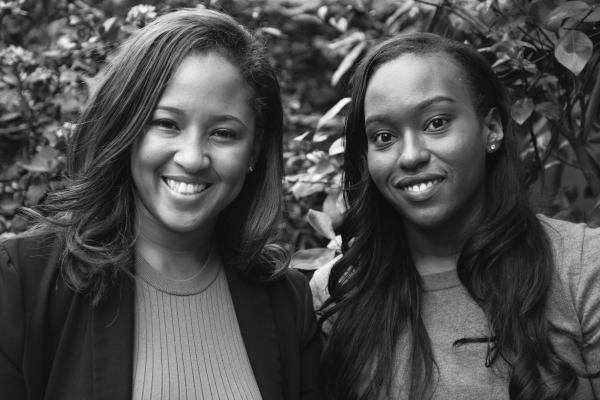
To us, feminism means equality and freedom. As black women, we are always vaguely aware that we are a double minority... both black and female. Often times, when we enter a room, we are the only black person... or the only woman... or the only black woman. We tell ourselves that we live in a society where none of this matters... where our ideas can be judged based on their merits... where our voices can be heard regardless of our gender, race or sexuality. We must believe that we are as good as, as qualified as, as worthy as the person next to us because... We. Are.
We know this. When society acknowledges the fundamental fact that all men and women were created equal AND we, as women, are free to make decisions about our bodies and lives, we will be on the path to a more equal and free society.
Until then, you can find us at a conference room, classroom, or boardroom near you... shoulders back and chin up. In the words of Oprah or rather Maya Angelou, "I come as one, but I stand as 10,000." We stand on the shoulders of giants and are reaching back for those who come behind us.
Lieutenant Commander Alison Wagner (MBA '19)
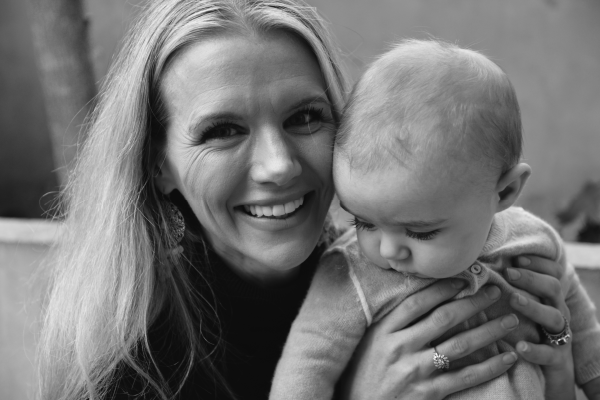
To me, feminism is synonymous with advocacy—advocating for equal rights and treatment for others and myself. Being a feminist means I believe all humans were created equal, regardless of the many outwardly things that can make us look and seem different.
As a new mom to a precious baby boy, being a feminist has become even more important to me. I want to raise a compassionate, joyful boy who grows up in a world where he can fully embrace all of the characteristics that make him unique, regardless if they aren’t “masculine” enough by other people’s standards. I want him to never feel confined by gender stereotypes and never make another human feel confined by them either. I want him to grow up in a world where he gets to experience and enjoy the beauty of diversity and never thinks that he is superior or inferior to anyone else because of those differences.
More importantly, I want him to feel empowered to change the status quo when he realizes it excludes and hurts others. More than simply just raising a kind little boy, I want to raise one who is also an advocate, always using his voice to help others. I want to raise a son who is also a feminist and in order to do this I must strive to be the best role model I can for him.
Nitin Nohria, Dean of the Faculty
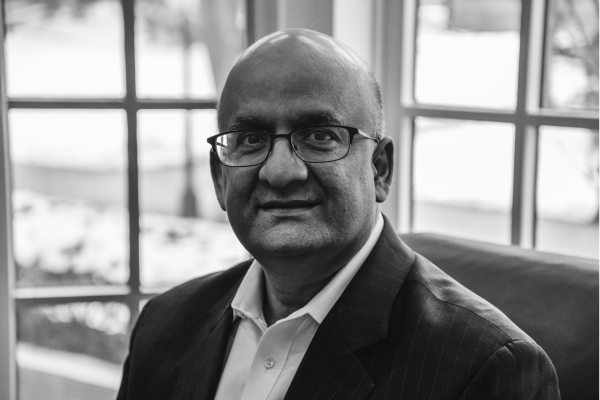
I believe women and men should have equal rights and opportunities in every sphere of human life. Most conversations about gender equity focus on professional life, and of course that’s essential. Women should earn the same as men, they should get promoted at the same rates, and they should have an equal shot in every sector and for every leadership position. In all this focus on work, however, we sometimes overlook the importance of gender equity at home.
My wife Monica and I have managed two full-time fulfilling careers because we have also strived for equity at home. Monica works in investment management and has launched three startups. I've been an academic all my life. We share household responsibilities to avoid the common trap of the female partner being saddled with what Arlie Hochschild calls “The Second Shift.” For instance, I do most of the cooking, and she manages our finances. When one of our jobs requires longer hours or extra travel, the other reduces their outside commitments. True gender equity at home will be increasingly important if we wish to realize gender equity at work.
Some people note that men who have daughters are more likely to be committed to gender equity. I have two daughters, but I’d like to believe that even if I’d had sons, I’d feel just as strongly about the need for gender equity, at work and at home, as I do today.
Sho Shafeiei (MBA '19), Co-President of the LGBTSA
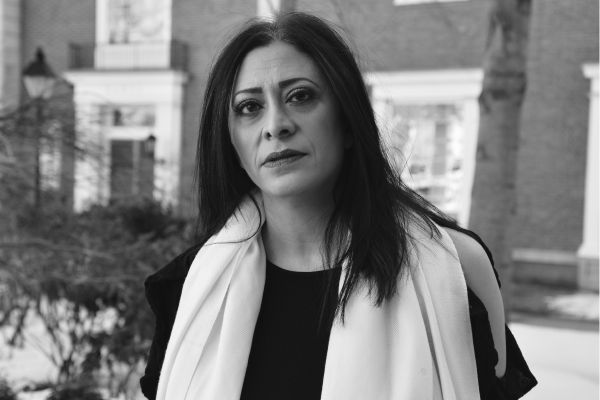
To say I belong to a marginalized group, would be an understatement. As a Middle-Eastern, Lesbian Woman who found refuge in the U.S. couple of decades ago, would only broadly cover three categories.
My life journey over the past 23 years has highlighted how different I was in every scenario I found myself.
From the time I realized I was gay (weird, not normal, different) as a teen in Iran, a society that offers the death penalty to the LGBTQ community, to becoming a non-English speaking 1 -year-old construction worker in the suburbs of Seattle.
From being in the 2% female population in my master’s program to being one of three female plant managers (out of 129 plants globally) in a heavy industrial manufacturing company. I knew I was different.
But I never saw being different as an obstacle; if anything, it has been the source of encouragement and tenacity. That’s how I approach being female. I don’t have to think too hard to realize men and women are different. How we choose to see our differences defines feminism for me.
Feminism to me is looking at our differences as powerful differentiating factors; using them to gain equity in society. Feminism is becoming a leader who recognizes and celebrates differences to create equal opportunities. Admitting I’m different than my male counterparts doesn’t take away from my feminism; it enhances it.
Jan Rivkin, Chair of the MBA Program
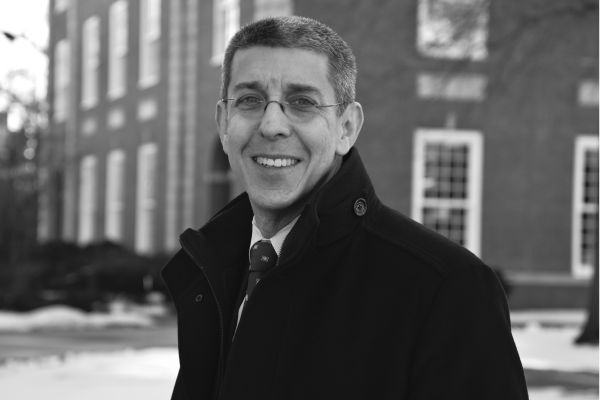
For me, feminism is the principle that people of all genders deserve equal rights, opportunities, and respect.
I’m a feminist because I’ve had the privilege of working with, learning from, and teaching strong, talented women. What a better place the world is--and how fortunate I am--when extraordinary women, and indeed all people, can make their full contributions!
I’m especially grateful to the folks who have coached me, over the years, to be a better ally. They’ve reinforced to me that the big things matter--things like the presence of women in the boardroom and a workplace free of sexual harassment.
But even more, they’ve taught me the importance of seemingly little things. It matters when I’m the one to get the coffee, when I’m the first to leave the meeting to pick up my kids, when I’m quiet so that someone else can speak.
Every day, I can take steps toward gender equity, and so can other men. I’m not a perfect ally yet, but thanks to my great teachers, I’m learning.
Whitney Staples (MBA '19)
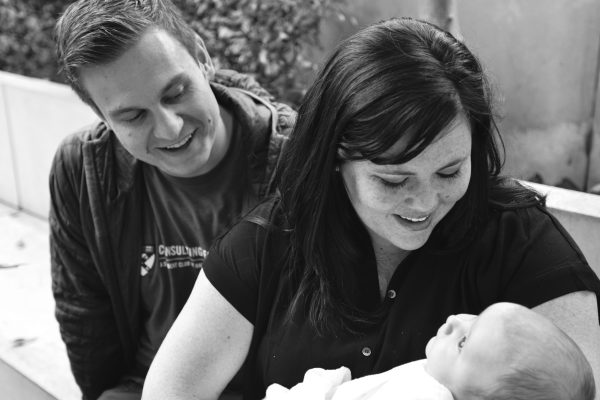
December 7th, 2019
- 11:25am Finished my last class of fall semester.
- 12:00pm Contractions started, though I wasn’t sure they were real.
- 10:30pm Finished my second of three finals.
- 11:40pm My water broke – those contractions were definitely real.
December 8th, 2019
- 6:45 pm after 19 hours of labor, our beautiful baby boy entered the world.
Never in my life have I felt more like a woman, than when I was growing our baby and then laboring to bring him into this world. Regardless of the pain, discomfort, and emotional stress that accompanies pregnancy and motherhood, I would do it 100 times over again. Because outweighing the uncomfortable parts is love and joy for this new life I’ve created. Women, alone, have the unique calling of becoming mothers. To me, that is exactly what feminism means.
Feminism is knowing that I am equal, but also recognizing the unique gifts I have as a woman. Feminism is about embracing my differences, instead of trying to fit in. Feminism is owning my choices and realizing that others may make different ones - and both are right. Feminism is rejoicing in every aspect of womanhood, switching off (hopefully smoothly) between soothing a crying baby and conducting a business meeting.
As I look at my now 2 month old son, I am overwhelmed by the world he is going to grow up in. I hope to teach him to be both tender and kind, to be honest and loving, and to be aware and brave. Aware to the world around him and the opportunities afforded him. Brave to speak his mind, to stand up for what is right, and to help others realize the unique gifts women have - just like his father has.
To me, being a mother is being a feminist. The ability to bring life into this world with hopes they will create an even better one is immensely powerful.
Imola Pinter (MBA '19), Natasha Kingshott (MBA '19), and Hortense Badarani (MBA '19)- Co-Presidents, Women in Investing
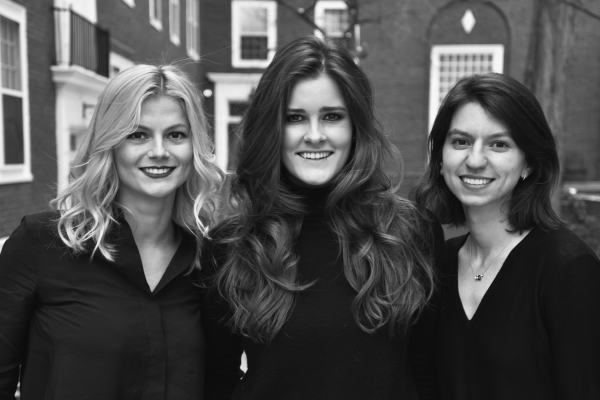
Feminism is changing the statistics. Women account for ten percent of senior investment professionals. Female founders receive two percent of venture capital funding. We want and need to change these numbers, to provide equal opportunities for women and allow the industry to realize the benefits of diversity. We endeavor to level the playing field in investing.
Feminism is having confidence. It is finding your voice when you feel alone at the table. We want every woman to feel empowered to speak her mind. We want every woman to be inspired to raise her hand and succeed, and have the confidence to risk failure in the pursuit of excellence.
Feminism is for everybody. We seek to build an inclusive, strong community at HBS and beyond. Building a network of feminist allies doesn’t just mean listening to women, but entails listening to every voice in the conversation - both female and male. This requires that all levels of an organization show commitment to change. This implies a subtle mind shift from championing women to championing talent.
Sana Mohammed (MBA '19) and Triston Francis (MBA'19)- Co-Presidents, HBS Student Association
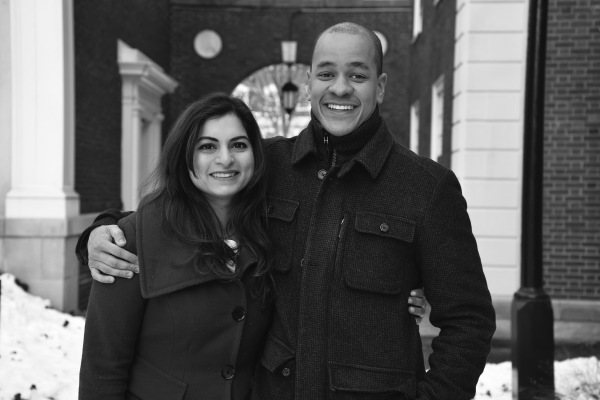
We believe that gender equality is not only the right thing for societies to strive for, but also the most effective way to advance communities across the globe. To get to the best possible outcomes, it is essential to make sure that all voices in the room are being heard. In the business world, the voice of women is often absent or not heard, leaving valuable perspectives lost. As future business leaders, we have an increased ability to change this narrative.
In our view, feminism entails advocating women's rights on the basis of the equality of the sexes. Throughout each of our lives, we will have a myriad of ways to do so through both large scale and every day small acts. Both of these are tremendously important as we seek to advance women's rights, making the world a better place.
As we build teams, interact with colleagues, and live with integrity, we encourage being an advocate for women and other minorities, making it easier for them to establish their important voice and presence within our community.
Erica Santoni (MBA '19) and Alexis Wolfer (MBA '19)- Co-Presidents, Women's Student Association
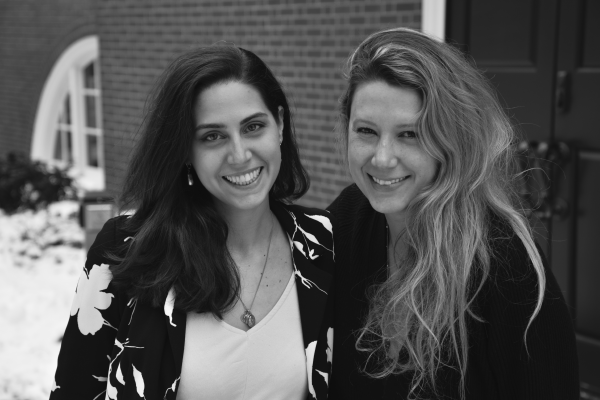
We are feminists.
For the tables we weren’t allowed to sit at and the sports teams we weren’t supposed to be on.
For our great-grandmothers who couldn’t vote, our grandmothers who weren’t allowed to enroll at HBS, and our mothers who were expected to sacrifice their careers to raise their families.
For the one in three of us who are survivors of sexual violence and countless others who endure sexual harassment on a regular basis.
For the 12 million of us who will experience domestic violence this year.
For the inadequate pay, the inequitable unpaid labor, and the lack of maternity and caregiving policies.
For the 24 women who are CEOs of Fortune 500 companies.
For HBS women, who make up only 41% of the student body and 25% of faculty.
For the men who have loved us because of our ambitions, not in spite of them. And for those who have tried to silence us.
For the women who came before us, who cracked ceilings we’re privileged to soar through.
For the women who will come after us, who we hope to tear ceilings down for.
We are feminists.

